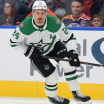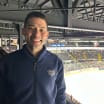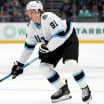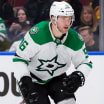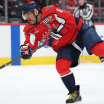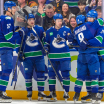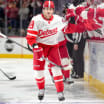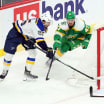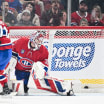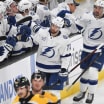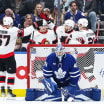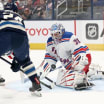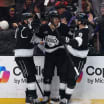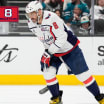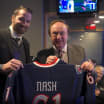Legendary hockey reporter and analyst Stan Fischler writes a weekly scrapbook for NHL.com. Fischler, known as "The Hockey Maven," shares his humor and insight with readers each Wednesday.
This week's edition features a 1969 interview with Hockey Hall of Famer Joe Primeau, then 63 years old. The meeting took place at Primeau's home in Toronto. They talked about his career as a player and coach with the Maple Leafs, as well as his rare feat of having coached teams that won the Memorial Cup, the Allan Cup and the Stanley Cup.
Voices from the Past: Joe Primeau
Hall of Famer talks about winning Stanley Cup as player, coach with Maple Leafs
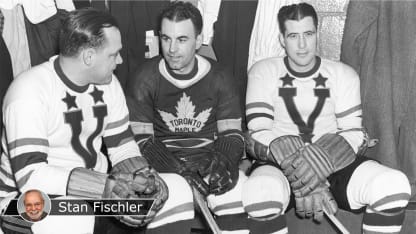
By
Stan Fischler
Special to NHL.com
What do you remember about your first year on skates?
I got a late start because I was raised in Victoria, British Columbia, where the winters are mild. Then we moved to Toronto and I was 13 when I first got on the ice. It was 1917 and an uncle of mine had gone to war and left a pair of skates at home. They were big for me, but I put a pair of woolen slippers inside to keep them snug on my feet. We lived across from a park, so after school I'd put the blades on and skate until suppertime. I'd have dinner -- with my skates on -- then go back out for almost an hour and skate until it was time to do homework.
When did you get serious about hockey?
There were a group of fellows as bad as I was, but we formed a club and challenged other teams. Eventually I got good enough to make my high school varsity as a right wing and then I was moved to center. I got good enough to try out for the Junior Marlboros, managed by Frank Selke. He was the assistant to Conn Smythe who ran the Maple Leafs. Mr. Selke sent me to a minor league club, the Toronto Ravinas. This was in 1926 when Smythe had been hired by the New York Rangers to put together their first team. Conn gave me $500, 10 $50 bills, as a bonus. It was the first time I had seen that much money. I pinned the cash in my inside pocket, went home and showed the money to my mother. She said, "Joe Primeau, you take that right back. You have no right to take that money." She thought I should be paying Smythe for the privilege of playing. Then Smythe got fired by the Rangers owners and returned to Toronto to organize the Maple Leafs, so I wound up starting with them.
How did you wind up centering one of the NHL's most famous lines?
By 1929 I began to feel that I really belonged in the NHL. Smythe had signed a new fellow named
Charlie Conacher
who had a terrific shot. Charlie and I worked on a line with
Harold "Baldy" Cotton
, who had come to Toronto via a deal with Pittsburgh. Then along came
Harvey "Busher" Jackson
, who replaced Cotton, and this was the beginning of what became known as "The Kid Line." At the time, though, we had no idea how good
,
Gus Mortson
and
Bill Barilko
. They had played so well on Cup-winning teams in 1947, 1948 and 1949. I also had a couple of tough boys,
Fern Flaman
and
Bill Juzda
. Up front we had three good centers with
Ted Kennedy
, the captain, leading the way. He was a tremendous competitor and face-off man.
Cal Gardner
and
Max Bentley
were the other centers. Max was one of the most exciting players I ever saw. Then there was more depth up front --
Tod Sloan
,
Sid Smith
,
Joe Klukay
and
Danny Lewicki
, who I had on the Marlboros when we won the Allan Cup.
How did you handle the goaltending?
That was interesting because
Turk Broda
, one of the best in the clutch, was in the twilight of his career. But we also had a younger goalie,
Al Rollins
. I alternated them about evenly during the season. By this time Broda had a weight problem, so I had orders from Conn Smythe to weigh Turk on the first and 15th of every month, the days that the paychecks were handed out. Turk had to be under 190 pounds or else he was fined. As a goalkeeper, Broda was great. He had the knack of coming back after a bad loss with a terrific game; his mental outlook was excellent in that respect. The tandem with Turk and Al worked well for us right into the 1951 playoffs. In the first round it really paid off. I started Rollins against the Bruins -- but he got run down by Boston's
Pete Horeck
, so I had to put Turk back in goal. He played well and we beat the Bruins to get into the Cup Final against Montreal.
What was it like to be a rookie NHL coach in the 1951 Cup Final?
Very thrilling. That series was one of the best of all-time because every single game of the five went into overtime. But the fifth one was really special because we were only one win away from being champs. Still, as coach, I had a couple of worries. One was stopping the great
"Rocket" Richard
, who had beaten us on a breakaway to win the second game for Montreal. My other concern was taming my aggressive defenseman, Bill Barilko. I had been after him for "getting caught in the slot." For a defenseman to get caught up ice was poison. That was especially so against Richard, who would break out and be gone. I said, "Bill, if you get caught up there I'm going to fine you $100, and $100 for every time after that. So Barilko started playing it pretty cautious -- until that fifth game went into overtime.
How did Barilko handle it?
Early in overtime], Bill was being careful, staying outside the blue line when we were pressing for the winner. Suddenly the puck came skimming toward the blue line. Barilko saw it and made this tremendous dive because he had to get the puck before a Canadien did or else there'd be a clear shot down the ice for Montreal. Somehow he threw himself at the puck and swung his stick all in the same motion. Bill fired the puck and then seemed to hang in the air, parallel to the ice, with his eyes fixed on the net. The puck flew over Canadiens goalie
[Gerry McNeil
into the net. We had won the Cup! I immediately jumped the boards and ran to Bill. He remembered that I'd been harping at him about playing back. "Well, Skipper " he said, "you didn't want the hook on me that time, did you?"
Looking back, do you have any regrets?
No, sir. If I had to do it all over again, I wouldn't change a thing. Winning the Memorial Cup, the Allan Cup and then the Stanley Cup was something special. Those coaching victories gave me a hat trick with the major hockey trophies. But eventually it was time for me to make a change. I still loved hockey, but to do the job right, the game involves a real, honest endeavor -- and by this time I had my outside business primarily on my mind, and knew I couldn't do both. I look back with pride. A pure hockey player is as honest a person as you can find because of what he does out there on the ice. There's no covering up anything. His performance tells the tale, especially when a player wins the Stanley Cup!

